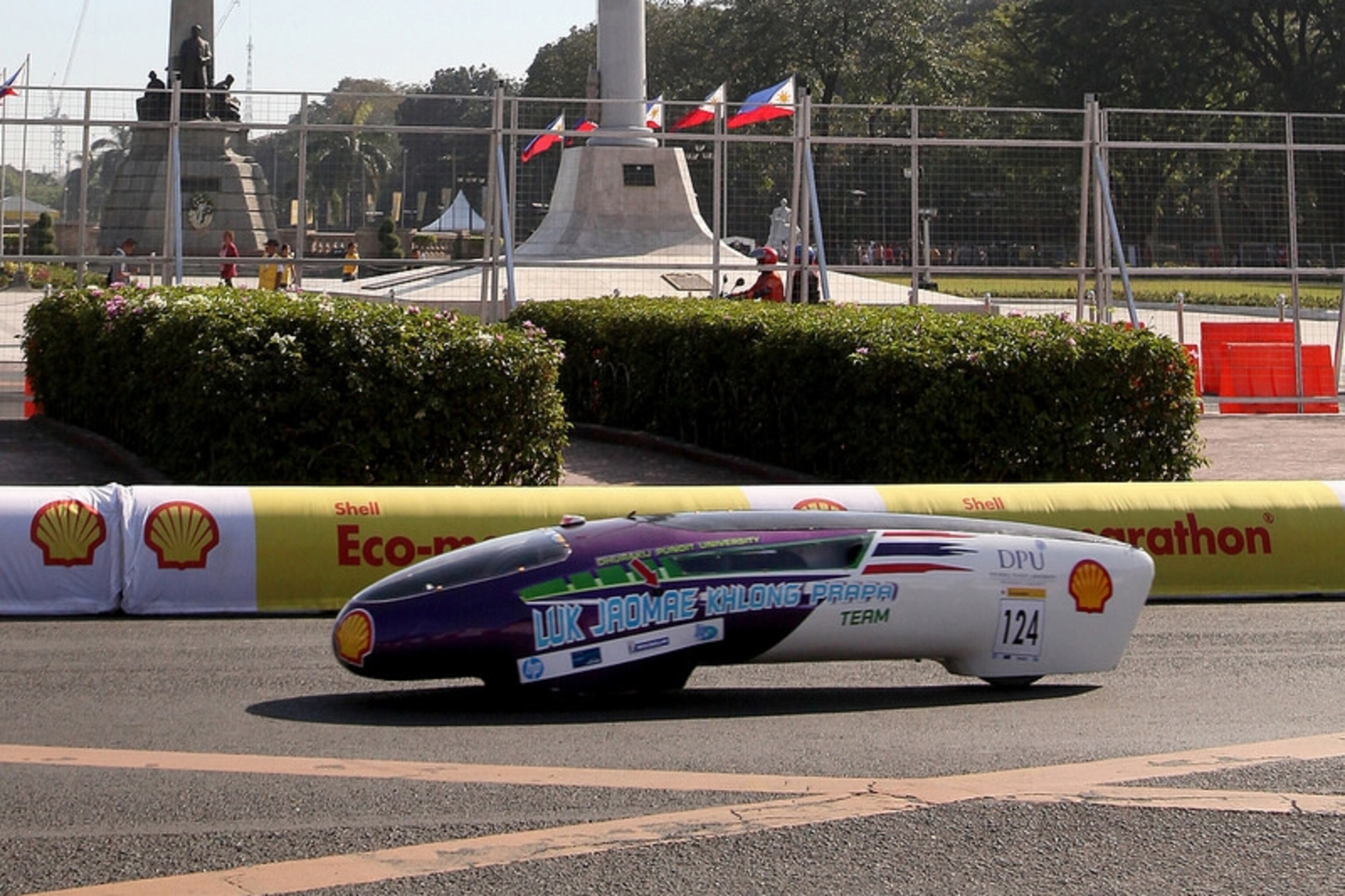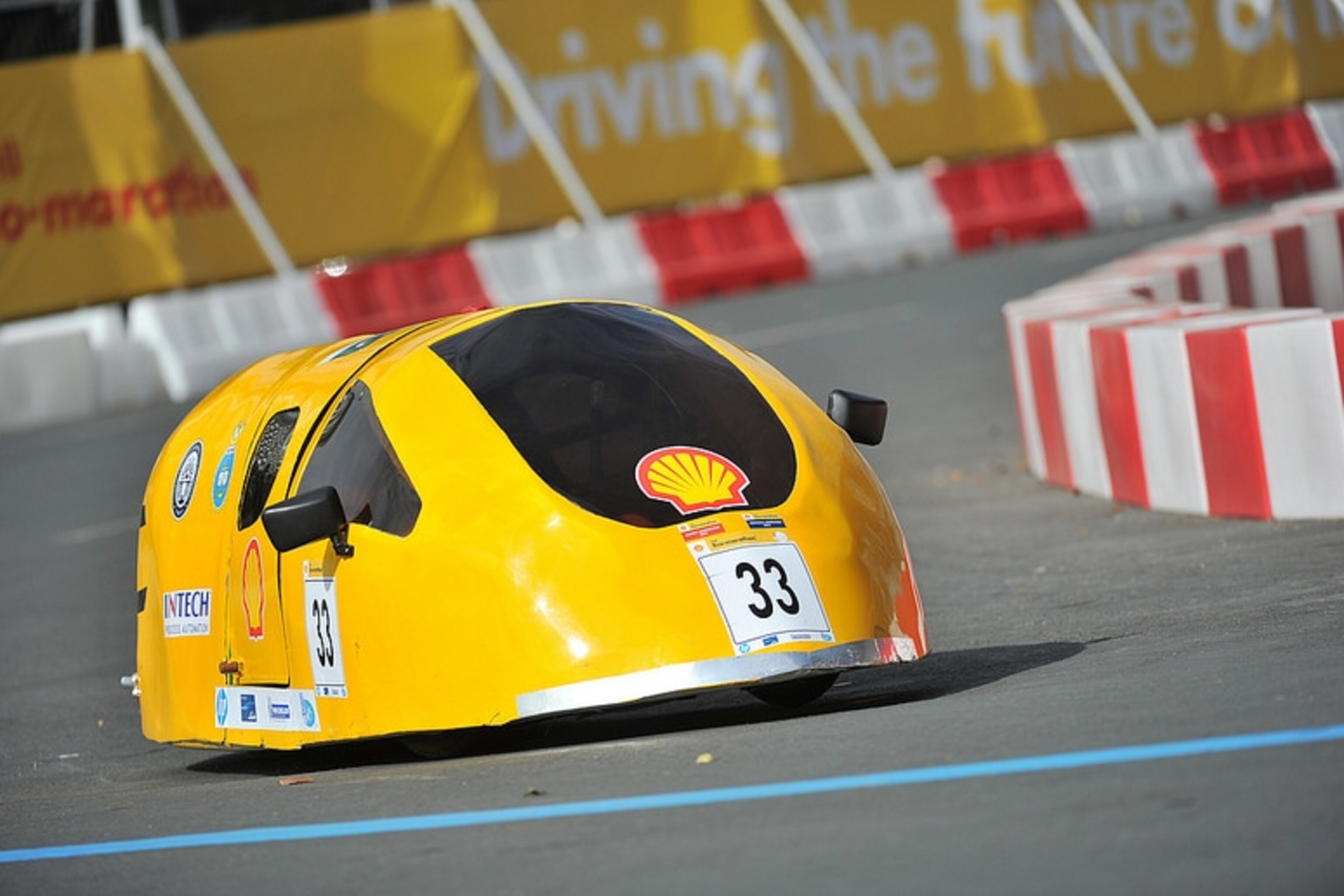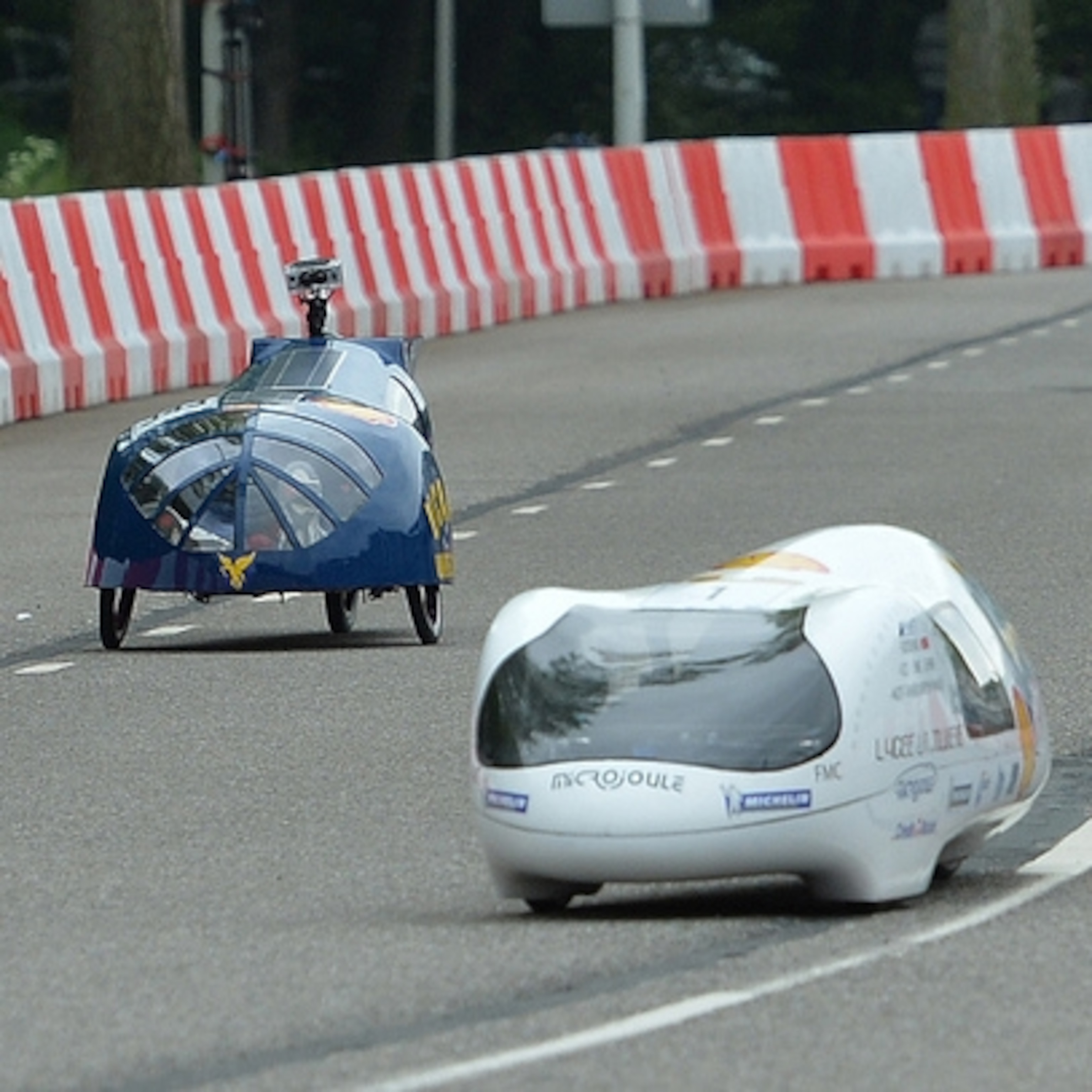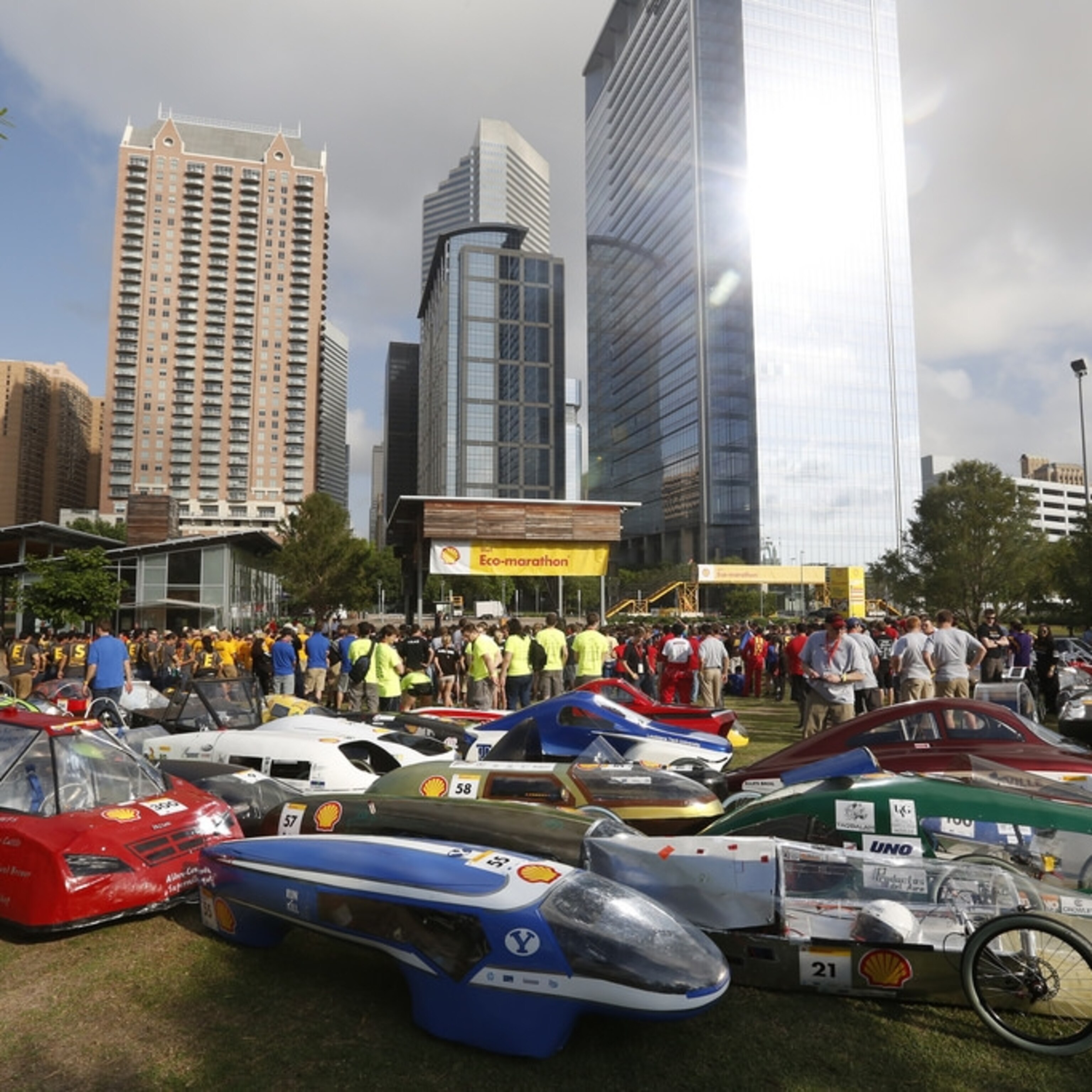







Thailand, Singapore, and Indonesia Dominate Shell Eco-marathon Asia 2014
They came, they built super-efficient vehicles, gained friends and conquered.
All 105 student teams from 15 nations participating in this year’s Shell* Eco-marathon Asia are going back to their home countries with a feeling of fulfillment and pride. But winners of the four-day race for fuel-efficiency—from Thailand, Indonesia and Singapore—were in an even more festive mood as they garnered the majority of awards. (Related: “In Manila, Students Race for Fuel Efficiency at Shell Eco-marathon Asia 2014.”)
Most Efficient Vehicle
This year’s most efficient vehicle goes to the students of Panjavidhya Technological College Thailand, whose prototype car ran on ethanol. They surpassed last year’s winner with their mileage of 2,730 kilometers—almost the distance from Manila to Jakarta, Indonesia—on a single liter. It is the equivalent of 6,421.4 miles per gallon.
Team adviser Jakkrit Ok-aree of Team Ethanol from the college attributed the students success to their year-long modification to their vehicle’s engine, efficiency and driving techniques.
“We are proud to have won this year. It was all teamwork. The students were very determined and patient in achieving fuel-efficiency through innovative design elements,” Ok-aree told National Geographic after receiving the team’s $2,000 prize and trophy.
When asked about the choice of using ethanol as fuel source, Ok-aree said the students believed that it was the most efficient renewable energy source in the market.
The runner-up award went to Dhurakij Pubdit University, also from Thailand, with a mileage of 2, 211.3 km/l (5,201 mpg), down from their previous record of 2,903 km/l (6828.3 mpg.) They placed first in the past two Eco-marathon Asia events.

Held for the first time in the Philippines, the event drew more than 120 teams from 15 countries around Asia and the Middle East. Only 105 teams passed the technical inspection to go on track. (See previous Shell Eco-marathon coverage.)
Thailand also won other awards. The student team from the Rattanakosin Technological College bagged the top prize in the prototype battery electric category, with a result of 263.4 kilometers (163.7 miles) per kilowatt-hour. That is the energy equivalent of 2345.39 km/l (5,516.7 mpg). (The conversion is based on the , based on the fact that one gallon of gasoline has the energy equivalent of 33.7 kilowatt-hours of electricity.)

The Sakon Nakhon Technical College was also declared as the top winner under the Prototype Gasoline category, and team from Kong Thabbok Upatham Changkol Kho So Tho Bo School as runner up, also under the Prototype Gasoline category.
“We don’t feel bad that we only got the runner-up award after two years of being on the top, because the top prize anyway went to our fellow Thais. Maybe we should do more in modifying our vehicle,” said team adviser Narongdech Keeratipranon of Team Luk Jao Mae Khlong Prapa from the Dhurakij Pubdit University.
Super-Cool Cars
Singapore garnered most of the off-track and on track awards. Students from the Nanyang Technological University of the Team NTU diesel car racing team got the runner-up award under the prototype diesel-fuel category with a mileage of 338.3 km/l (795.7 mpg). The NTU diesel car racing team also won the off-track awards in vehicle design as well as safety. NTU’s Nanyang E Drive team also took home an award, for technical innovation.

“We have mastered our technical innovation, safety and low-impact design of our cars for many years. We attribute this to the advantage of Singapore as a highly-technological country, which students are benefitting from,” said Professor Ng Heong Wah of the NTU’s Division of Engineering Mechanics.
The jury of the off-track award said that on the NTU’s vehicle design and safety, the team “employed the core of their design with impressive risk assessment studies and clever use of materials. Special attention was placed on computer design and laser-cut strips of wood that were made to absorb energy in case of impact, yet break up into small parts and not large dangerous shards.”
The jury also noted that the NTU team “displayed exceptional safety practices in their garage by maintaining a very orderly work environment free from avoidable hazards.”
The jury also said that the NTU’s Nanyang E Drive team won the technical innovation award because of their “use and placement of an electromagnetic clutch to eliminate most drive-train losses when coasting, and for incorporating a splitter to separate turbulent and laminar flows to reduce drag.”

Indonesia Performs
Indonesia fielded the most number of teams in the race with 18, and seven teams from five universities won top awards.
Indonesian student teams bagged four on-track urban concept awards. – Universitas Indonesia for urban concept gasoline, University of Sumatera Utara for urban concept ethanol, Politeknik Negeri Pontianak for urban concept diesel and Institut Teknologi Sepuluh Nopember for urban concept FAME, also known as biodiesel. This is Universitas Indonesia’s second consecutive win in the urban concept gasoline category with a new best performance of 301.7km/l (709.6 mpg)–almost double their previous result.

“I think winning is one of the best parts of the race. All our efforts, patience and team spirit paid off. We aim to be much better and really prepared for the next Eco-marathon,” said Pither Supermando, team manager from the Universitas Indonesia.
Most of the competing students are majoring in mechanical engineering technology, automotive engineering and vehicle body engineering in their countries.
“In joining this competition, we are not only learning how to be real engineers but how to be creative, patient and resourceful. We are prepared for this,” said Gusti Ramadani, 21, an engineering student from the Politeknik Technical Education Development Center Bandung in Indonesia.
Here’s a list of the other winners:
Prototype Category

- UiTM Eco-Sprint team from the University Teknologi Mara (UiTM) Shah Alam from Malaysia won top prize under the hydrogen fuel-type with 77.6 km (48.2 miles) per kilowatt-hour, the energy equivalent of 690.9 km/l (1,625 mpg.)
UKM 2 Car Fuel Cell team, also from Malaysia from the Universiti Kebangsaan, came second under the hydrogen fuel-type with 52.1 km (32.4 miles) per kilowatt-hour, equivalent to 463.407 km/l (1090.9 mpg.)
Huaqi EV team from the Guangzhou College of South China University of Technology got the runner up award with the use of battery electric with 247.9 km (154.05 miles) per kilowatt-hour, equivalent to 2207.1 km/l (5191.5 mpg.)
Zeal Eco-power diesel from the Tongji University of China bagged the top award using diesel fuel-type with 616.2 km/l (382.9 mpg).
Team Monash 2 from the Monash University in Malaysia got the top prize for the use of gas-to-liquid as alternative diesel fuel
Team Gernas from the Qatar University bagged the second post on the use of gas-to-liquid as alternative diesel fuel.
Urban Concept Category
UiTM Eco-planet team of the University Teknologi Mara (UiTM Shah Alam from Malaysia won the top prize for the use of hydrogen with 44.5 km (27.6) miles per kilowatt-hour, equivalent to 395.4 km/l (930.1 mpg.)
Philippines’ DSLU Eco-car Team-electric from the De La Salle University bagged the runner up award for the use of battery electric with 66.4 km (41.3) miles per kilowatt-hour, equivalent to 591.7 km/l (1,391.8 mpg.)
Other off-track awards went to:

Pakistan’s National University of Sciences and Technology won the communications award. Its team, PNEC NUST-Prototype, was selected because of their innovative approach to creating awareness and support for their team.
Philippines’ DLSU Eco Car Team-Electric from the De La Salle University bagged the “Perseverance and Spirit of the Event” award together, with India’s MIT Eco-Warriors team from the Madras Institute of Technology. The jury noted that the two teams stood out because of their “persistence and generosity while maintaining a positive attitude.”Malaysia’s Team Monash 2 from the Monash University in Malaysia won the “Shell Helix Tribology” award. The jury recognized the importance of keeping their vehicle components clean and lubricated. It added that they also demonstrated an understanding of the impact of their fuel of choice, GTL Diesel, on lubrication in the vehicle engine. This team recognized the importance of choosing the right viscosity, minimizing friction and maximizing fuel economy.
“When I see all of you here I see that you are truly the hope of not only for your respective countries but the hope of our world for the future,” said Edgar Chua, country chairman of Shell companies in the Philippines during the award ceremony. “I see the collaboration. This not just about science and technology. This is really more about a community of nations making friends, which I hope in the last few days you were able to do.” (See related, “On Track to Succeed With Efficient Girl Power.”)
Imelda V. Abano, founder and president of the Philippine Network of Environmental Journalists, is reporting from Manila.
*Shell is sponsor of National Geographic’s Great Energy Challenge initiative. National Geographic maintains autonomy over content.
You May Also Like
Go Further
Animals
- Octopuses have a lot of secrets. Can you guess 8 of them?
- Animals
- Feature
Octopuses have a lot of secrets. Can you guess 8 of them? - This biologist and her rescue dog help protect bears in the AndesThis biologist and her rescue dog help protect bears in the Andes
- An octopus invited this writer into her tank—and her secret worldAn octopus invited this writer into her tank—and her secret world
- Peace-loving bonobos are more aggressive than we thoughtPeace-loving bonobos are more aggressive than we thought
Environment
- This ancient society tried to stop El Niño—with child sacrificeThis ancient society tried to stop El Niño—with child sacrifice
- U.S. plans to clean its drinking water. What does that mean?U.S. plans to clean its drinking water. What does that mean?
- Food systems: supporting the triangle of food security, Video Story
- Paid Content
Food systems: supporting the triangle of food security - Will we ever solve the mystery of the Mima mounds?Will we ever solve the mystery of the Mima mounds?
- Are synthetic diamonds really better for the planet?Are synthetic diamonds really better for the planet?
- This year's cherry blossom peak bloom was a warning signThis year's cherry blossom peak bloom was a warning sign
History & Culture
- Strange clues in a Maya temple reveal a fiery political dramaStrange clues in a Maya temple reveal a fiery political drama
- How technology is revealing secrets in these ancient scrollsHow technology is revealing secrets in these ancient scrolls
- Pilgrimages aren’t just spiritual anymore. They’re a workout.Pilgrimages aren’t just spiritual anymore. They’re a workout.
- This ancient society tried to stop El Niño—with child sacrificeThis ancient society tried to stop El Niño—with child sacrifice
- This ancient cure was just revived in a lab. Does it work?This ancient cure was just revived in a lab. Does it work?
- See how ancient Indigenous artists left their markSee how ancient Indigenous artists left their mark
Science
- Do you have an inner monologue? Here’s what it reveals about you.Do you have an inner monologue? Here’s what it reveals about you.
- Jupiter’s volcanic moon Io has been erupting for billions of yearsJupiter’s volcanic moon Io has been erupting for billions of years
- This 80-foot-long sea monster was the killer whale of its timeThis 80-foot-long sea monster was the killer whale of its time
- Every 80 years, this star appears in the sky—and it’s almost timeEvery 80 years, this star appears in the sky—and it’s almost time
- How do you create your own ‘Blue Zone’? Here are 6 tipsHow do you create your own ‘Blue Zone’? Here are 6 tips
Travel
- This town is the Alps' first European Capital of CultureThis town is the Alps' first European Capital of Culture
- This royal city lies in the shadow of Kuala LumpurThis royal city lies in the shadow of Kuala Lumpur
- This author tells the story of crypto-trading Mongolian nomadsThis author tells the story of crypto-trading Mongolian nomads
- Slow-roasted meats and fluffy dumplings in the Czech capitalSlow-roasted meats and fluffy dumplings in the Czech capital






